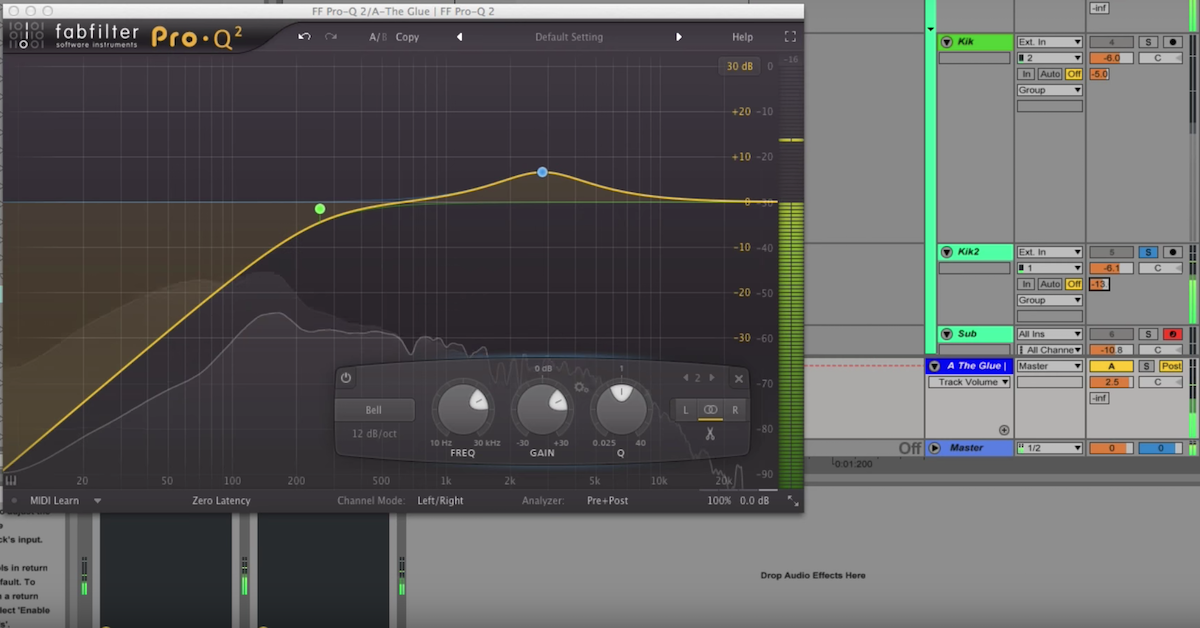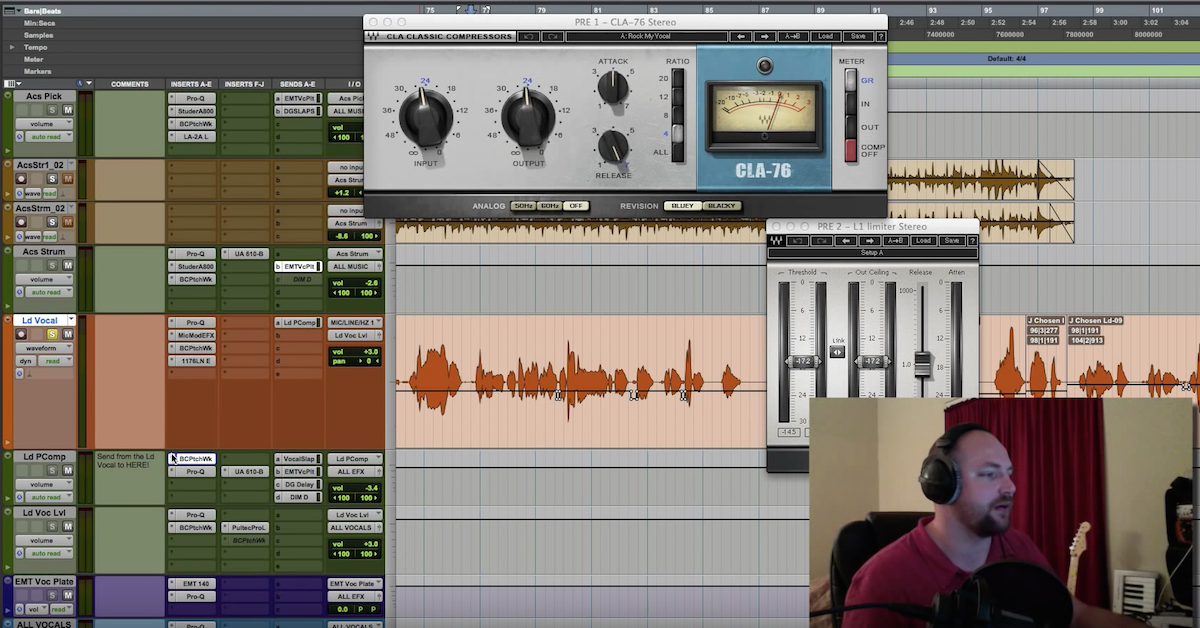How to Book a Gig for Your Band at a Live Music Venue
Article Content
Alright, let’s get the bad news out of the way early …
There’s no magic trick to booking a gig. It’s going to take time, effort and a whole bunch of emails.
If you’re early on in your career, don’t expect to get paid. Bands are paid based on how many people they can draw. If you don’t draw a crowd, you don’t get paid.
Your friends are not your fans. They like you for reasons other than your music. Fans are people who regularly come to shows.
Finally, and this one may be hard for some of you to hear, but no one cares about your music. Venues are interested in selling tickets and drinks, not seeing your new 24 track concept album performed live. You need to sell the venue on how this show could benefit them.
Ok, now that all the ugly stuff is out of the way, let’s talk about how to book a live gig!
The first step is simple, and hopefully, you’ve already crossed it off the list …
Step 1: Be Active in Your Local Music Scene
No one likes to do business with strangers. Meet bands. Introduce yourself to the venue staff. Remember the bartender’s name. Be nice to everyone.
This goes for social media too. Like venue pages, share band events and comment on posts. Be active in the community and make people want to give you a chance!
Step 2: Find the Right Venue
Don’t beg every bar with a stage in the tri-county area for a show. Find somewhere that hosts shows with acts similar to yours. Are you in a black metal band? Then the club that books DJs isn’t going to book you. Are you a trap rapper? Then the restaurant that books acoustic jazz isn’t going to book you.
Similarly, find a venue that your fans actually want to go to. If your fans are young, don’t bother talking to venues that typically put on 21+ shows with a $40 cover. If your fans are a bunch of rowdy beer drinkers, don’t bother talking to the wine bar with the dress code.
Part of picking the right venue is being able to fill it. If you usually draw 50 people on a weekday, there’s no point in trying to book the 1000 capacity theater. Even if you do get the show, it’s going to suck.
A good rule of thumb is to book a venue that’s too small rather than too big. It’s always better to pack a smaller venue to capacity than have empty seats in the biggest club in the city.
Sure, it might be cool to be able to say you played at House of Blues or whatever, but if the show sucked does it even matter?
Don’t: Don’t email venues you have no place performing at. It makes you look desperate and shows you can’t be bothered to do your research before asking for help.
Step 3: Pick a Date (or Two, or Three!)
Once you find the right venue, check out their calendar and find what nights they typically have acts like yours perform. Then, find a few dates they haven’t booked yet, and put together a package for them. You want to make this as easy as possible on the venue. The less work they have to do, the more likely they are to book you.
Don’t: Don’t ask the venue for any favors. Why would they let you open for the Foo Fighters if you have 89 Facebook followers?
Step 4: Put the Bill Together
Once you have a few dates in mind, start looking for bands that would be a good fit for the show. It helps if you can find bands that the promoter is already familiar with, or that have played at the venue before.
Find 2-3 bands that:
- Are available and interested in the gig. It doesn’t count if the guitarist has to work that night, or the drummer doesn’t have a kit.
- Are in your genre. Your fans should enjoy their music too!
- Can draw as many people as you (or more!)
- Haven’t played in this city for at least 3 weeks. If they just played a show across the street last weekend they aren’t going to draw their usual crowd.
- Are willing to work together to put on a good show. That means sharing equipment so the venue staff doesn’t have to spend extra time loading and unloading 8 guitar amps. That also means printing fliers and handing them out.
Don’t: Don’t ask the venue if you can open for Popular Local Act. How would that benefit the venue?
Step 5: Do Your Research
After you’ve got a few bands willing to do the show, prepare some numbers for your pitch. Do some more research and have stats on the following ready:
- The last 4 shows all the bands have played. When, where, how many people attended, and what they got paid. This establishes value.
- Social media. How many Facebook, Twitter, Instagram, Snapchat, etc. followers do the bands have? You can use this as leverage to help promote the show.
- The music! How many listens on Spotify, Apple Music, BandCamp, Soundcloud, etc.?
- Ticket prices. Have a price in mind for tickets that’s in line with what the venue usually charges and what your fans are willing to pay.
- Your merch. How many t-shirt designs do each of the bands have? How much do they usually sell in merch every night? Keep in mind most venues take 10-30% of your merch sales, so they’ll be interested in knowing how much they can expect to make here.
- Your budget. The venue is not solely responsible for promoting the show. Let them know how much money you plan to invest on fliers and other promotional items, and when/where/how you plan to promote the show yourselves.
Don’t: DO NOT lie about your numbers. They’re relatively easy to check and inflating these numbers is only going to hurt you in the long run when you turn out to be less popular than you said you were.
Step 6: Send an Email
Now that you’ve got a package together, it’s time to bring it to the venue. Remember, your goal here is to sell the venue on how this show could benefit them. The less work they have to do, the more likely you are to book the gig. Show them that you’re prepared and professional.
That starts with an email.
Do some research and find out who the talent buyer or promoter for the venue is, and send them a personalized email, including their name.
If you’re just looking for a shot, be honest about it. Explain to them that you’re willing to prove yourself and play for free on a slow night.
Once you’ve finished your email, proofread it. Then edit it. Then proofread it again. First impressions are everything!
Don’t: Don’t send out vague email blasts. Be specific. Tailor your pitch to the venue.
Step 7: Follow Up
If you don’t immediately hear back, don’t panic. Venues tend to get a lot of emails from people they don’t know asking for favors and it can be difficult to break through the static.
After a week, send a follow-up email. Don’t just resend the first one, write a new email with a new introduction that explains it’s a follow-up.
Repeat Step 7 as Needed
Don’t: Don’t be annoying. There’s a fine line between being persistent and being annoying. Find it and never cross it.
Eventually, you should get an email back, which will lead to a phone call, which will lead to meeting in-person the day of your show if you play your cards right.
When you do finally get the gig, just remember to work hard and stay humble. You’re not a rock star yet and still need to pay your dues.
DON’T: Don’t go crazy on the rider. Just because you can, doesn’t mean you should. Being easy and agreeable goes a long way. Don’t ask for sushi.
Step 8: Kill It!
The easiest way to book a gig is to do a good job at your last gig. If you promote the show, draw a crowd, perform well, and were easy to work with, then all it takes to book a second gig is a simple follow-up email.
Welcome to show biz, baby! Maybe next time you’ll get your name on the marquee!





